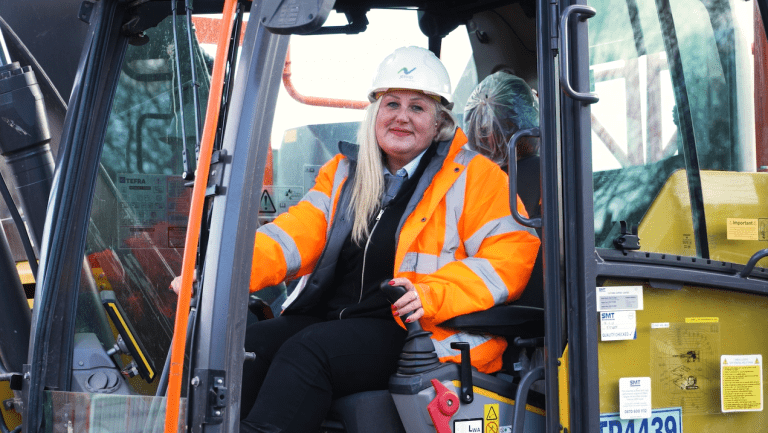It’s no surprise that construction is one of the most high-risk professions in the world. This is a real concern for employers, who must be constantly conscious and proactive about dangers that they may ultimately be liable for in case something goes terribly wrong. Accidents can happen on a construction site for a number of reasons, including health and safety breaches, inadequate training and equipment failure. In fact, construction has been named the UK’s most deadly industry. In the past, there have been some devastating incidents that have resulted in death and disability, including one occasion at Caterpillar, which was blamed on poor training and work conditions. Such tragedies leave a lot of devastation in their wake, and employers have a responsibility to take all measures possible to prevent them. Common injuries that employees sustain within the construction industry include electrocution, burns, eye injury, broken bones, neck, shoulder and back injuries and spinal cord injuries, to name just a few. In the most serious cases, such injuries can result in death or life-altering disabilities. Of course, it’s entirely possible for employees on a construction site to file a personal injury claim if they feel it’s warranted. To prevent this from happening and to ensure safety for employees, as well as making sure employers within the construction industry are well-informed, below are a few examples of the most common injuries that happen on construction sites. Most construction businesses have very strict rules and follow government guidelines to ensure the stability and safety of scaffolding, but unfortunately, things can go wrong, and when they do, the results can be terrible. As an example, we can point to a very recent example of a scaffolding collapse that killed three people in North Carolina, which has shed new light on the importance of scaffolding safety. Furthermore, in January 2023, there was a scaffolding collapse in Stoke Newington that brought down part of a building on a busy road. We know that safety glasses, personal protective equipment and hardhats should always be worn on a construction site in order to prevent injury. Failure to do so can result in traumatic brain injuries if a falling object strikes a worker on the head, which can have a significant, permanent impact on someone’s life, causing brain damage, functional impairment, mobility and cognitive issues. Unsurprisingly, accidents can often occur when employees work with power tools, machinery, generators and electrical wiring. Construction workers are at risk of suffering electric shocks, electrical burns and electrocution. Third-and-fourth degree burns often require surgery and skin grafts, or other intensive medical treatments, ultimately affecting quality of life and the ability for the worker to earn a living. Exposed wires and improper use of electrical gear are common causes of electric shocks. To reduce the chance of such injuries occurring, it’s necessary for employees to be given basic safety measures and training, as well as applicable safety equipment. All employers have a responsibility to ensure the site is safe for all workers – failure to do so could certainly provide grounds for a personal injury claim. The Health and Safety Executive (HSE) has revealed that falls from a great height and ‘slips, trips or falls from the same level’ were the most common causes of non-fatal injuries for construction workers. Accidents can happen when workers fall from a building or scaffolding or off a piece of machinery. Sometimes, workers might fall into holes or ditches, leading to broken bones and fractures, sometimes requiring weeks of healing, loss of mobility, paralysis and, occasionally, lifelong pain. While falls are common, there are measures employers can take to help minimise risk, including using appropriate equipment such as guardrails, harnesses and safety net systems, while enforcing safety regulations. Workers should also be encouraged to wear the correct footwear and to keep workspaces free of any clutter. Trench collapses can prove fatal, especially when the collapse causes a worker’s air supply to be cut off. Equally, such incidents can lead to crushing injuries, including spinal injuries and nerve damage, leading to intense pain and loss of function. As an example, we can look at the trench collapse in Stafford in 2022, which led to VolkerRail being fined £550,000. Employers must take great care to ensure trenches are fully supported and that any defects in the support structure are reported immediately. RSIs occur when the body has to perform the same action over and over, leading to the muscles and soft tissues becoming worn and damaged. Construction activities such as sawing and using jack-hammers can potentially result in RSI. To prevent RSI, workers must take regular breaks and employers must take note and enforce preventative or relief measures if employees report feeling uncomfortable or in pain. Employers need to ensure that vehicles and pedestrians can coexist on site in a safe manner, given that when conflict occurs, the result is almost always serious – and in most situations, the fault would more than likely be on the part of the employer. Building, Design & Construction Magazine | The Choice of Industry Professionals











